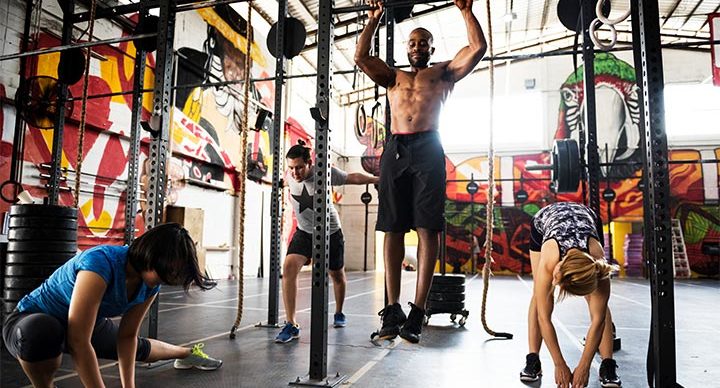
There are some general principles of training that one must adhere to before starting any physical fitness regimen. These principles of training take into account your genetic make-up, your fitness training history, motivation and commitment, strength, endurance, cardiovascular endurance and flexibility. It is our trainer’s job to help you navigate the training regimen in order to produce the best results that you can get.
The following are the principles of training:
1. Overload
For any effective and apparent physical transformation to take place, there must be an exposure over a period of time in terms of an appropriate amount of exercise effort (strength, endurance, flexibility). Safe overload exposures are within 10 – 30 % of what your body is accustomed on a daily basis.
2. Progression
For improvement in your body’s fitness there must be progressions in overload and in the complexity of the exercise. These progressions will only be advanced when you are accustomed to the overload. This will usually take around 4 – 6 weeks from the time that you start your training program.
3. Specificity
Fitness gains will always be specific to the overload even though there may be cross-training effects. For example, a circuit training programme that is designed for improving lower limb fitness will not improve upper body fitness but may have some cardiovascular benefits.
4. Continuity
For sustained fitness levels, there must be regularity in training. Regular training will also help you to integrate fitness as a part of your daily life activities.
5. Rest, Recovery & Adaptation
Rest and recovery periods between exercise bouts are important for physiological adjustment and adaptation so that the bodily systems become better and fitter in coping with and handling future exercise demands. Rest and recovery are also important for the body to get rid of exercise metabolites and for the body to replenish lost muscle nutrients as well as help the body rejuvenate and repair past wear and tear.
6. Individualisation
Almost 50 % of the physical fitness differences between people are explained by genetics. Two people will always respond differently to the same exercise programme. Hence it is important to personalise and individualise exercise programmes to suit each client. A one-size-fits-all programme can and must never be used for everyone.
7. Reversion
This principle states that training or overload exposure must be continued for fitness goals to be maintained. Removal of overload stimulus means that fitness will start to deteriorate to the initial levels of fitness that the body is accustomed to. The principle of reversibility in short – USE IT OR LOSE IT!
8. Diminishing Returns
Initial excitement and enthusiasm for fitness training for most people can easily turn into a problem as one forgets to adhere to the rest-and-recovery principle and over-trains and over-stretches thereby resulting in less or reduced gains for the same exercise effort. Signs of over training include sleeplessness, increase in resting heart rate of more than 10 beats per minute, lethargy, increased susceptibility to colds and coughs and rapid weight loss.
9. Stagnation / Plateauing
Improvement in fitness is always dependent on the initial entry level of fitness of a person beginning a fitness programme. Rates of improvements are usually greater for people whose entry level of fitness is low compared to one whose entry levels of fitness are comparatively higher. Improvements in fitness may also plateau or stagnate if the overload is inadequate or if the fitness programme becomes stale. It is the job of our trainers to reassess your training goals from time to time and introduce a variety of training whenever your fitness levels start to plateau.
10. Cross Training
It is important to expose the body to different routines and different forms of weight resistance training (free weights, machines and body weights), flexibility exercises (static, PNF) and cardio training (interval, continuous, FARTLEK). This will provide for variety and more motivation.
11. Periodisation
Periodising the fitness training programme will provide the opportunity for ‘peaking’ or optimizing fitness returns when it matters most such as a beauty or body building competition or if you are appearing for a photo or film shoot or for life events where you will have to look your best such as your own or a friend’s wedding.
Do not miss a single article!
Submit your email id to get new articles directly into your email inbox!




Add Review